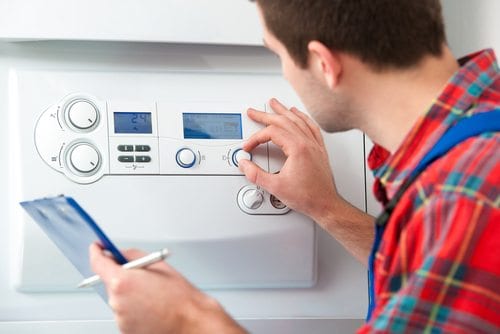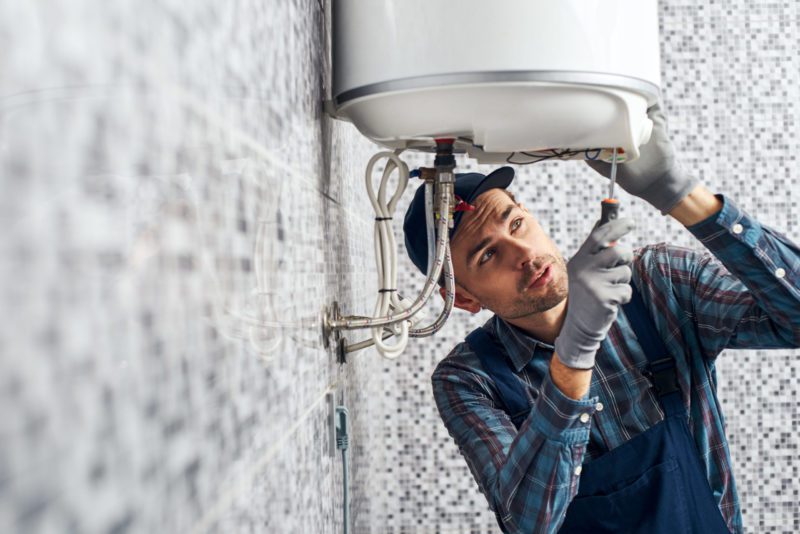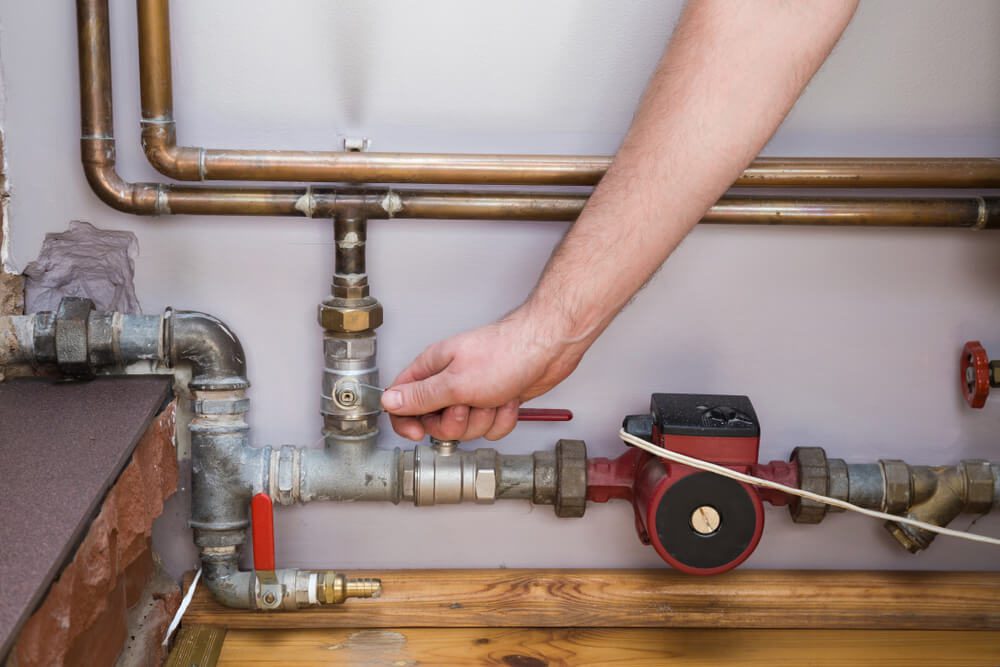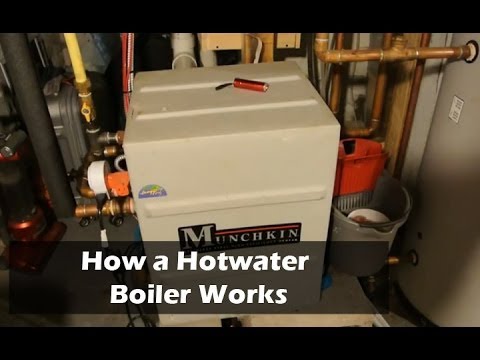Starting Up a Boiler After Summer (Winter Start Up Guide)
Starting up a boiler in cold conditions is an essential step when it’s time to prepare your home for winter. Boilers need regular maintenance for continued performance and efficiency, which you want to do before starting up a boiler for the season. After start-up, look for signs of trouble so repairs can be scheduled early on.

Apollo Home walks you through the steps of starting up a boiler for the first time after summer to help you ready your home this season. For Cincinnati boiler repair and maintenance, we are only a phone call away!
Start-Up Maintenance Checklist for Boilers

Prior to turning on a boiler for the season, it’s important to have your heating system inspected and maintained by a professional. Boiler maintenance services typically include the following:
- The boiler will be drained and flushed. Any soot and scale will be cleaned up from the firesides, and the boiler will be examined for corrosion and damage.
- The fuel burning equipment will be cleaned and adjusted.
- All controls and fuel safety shutoff valves will be looked at to ensure they’re working safely and properly.
- The mechanical components will be lubricated.
- The low water cutoff and water feeding devices will be disassembled, cleaned, reconditioned, and reassembled.
- The technician will perform a visual evaluation of the tank, cold water supply line, hot water outlet line, and all connections for signs of deterioration or water leaks.
- Techs will examine the gas supply line and connections for any evidence of leaks or damage.
- The boiler tank will be drained to remove mineral sediment and refilled.
- The technician will check the condition of the boiler vent pipe and ensure that it is intact and unobstructed all the way to the exterior of the house.
- The main gas burners will be removed, cleaned, and re-installed. Also, the technician will clean the boiler pilot light assembly or verify proper operation of the electronic igniter.
- The circulation pump motor will be lubricated.
- The technician will start the system and observe the burner flame for proper color and height.
- Once the system is at operating temperature, the tech will verify that water temperature and system pressure conform to manufacturer’s specs.
- The technician will check the pressure charge in the expansion tank. Then, they will drain excess water if required and/or recharge with air if necessary.
- Technicians will Inspect pressure relief valves for leakage and test for proper operation.
- The technician will bleed air from all radiators in the house at individual bleed screws.
Boiler Start-Up Check List After Summer
Once the boiler has received a proper tune-up, the following steps should also be performed right before you need to use it to ensure a safe boiler start-up:
- Cleaning: Make sure boiler components are clean and there is no dirt or debris on the combustion and air openings and louvers. Use cleaning brushes or a vacuum to remove any accumulation.
- Water Volume: Double-check that the boiler has the right amount of water. Consult your boiler system’s owner’s manual to determine the appropriate water volume for your unit.
- Dampers: Be sure all stack dampers are open. This allows combustion byproducts to safely vent out of the system and the home during a heating cycle.
- Obstructions: Look at the boiler furnace to see if there’s any obstructions. Remove any items stored within close proximity to your boiler and clear any found obstructions.
- Inspection: Inspect the furnace and fuel passes for the accumulation of fuel. This ensures fuel feeds properly through the system.
- Valves: Ensure the manual fuel valves are open. This provides the boiler with a fuel source when it is time for a heating cycle.
Once the above steps are complete, you can close the operating switch and continue with the normal start-up procedure. You should carefully watch it turn on to make sure it follows the start-up sequence.
5-Step Normal Boiler Start-Up Procedure
After completing the above checklists, close the operating switch and complete the starting sequence for your model. Improper boiler startup can damage the boiler, so try to find the general boiler start-up instructions on the label attached to the front jacket panel. Here is a typical boiler ignitor starting sequence.
- Turn off power to the boiler and remove the front jacket panel.
- Turn off the gas to the boiler and wait five minutes; if you smell gas, evacuate the building.
- If no sign of gas is present, restore the gas and turn the boiler on. Most boilers have an auto igniter. Follow your boiler’s instructions or the user manual.
- Increase the boiler temperature gradually, increasing it by less than 100 degrees Fahrenheit every hour until you reach your target temperature.
- Reattach the jacket panel.
Common Signs of Boiler Problems

To avoid heating system problems this winter, after starting up a boiler, you need to watch for the signs that boiler repair is needed. If you are able to catch these signs early on, repairs can be made before the problems result in more extensive damage or a system breakdown that leaves you without heat.
Boilers aren’t especially complicated, but they can be temperamental. One of the most common boiler problems is that the unit simply won’t perform its function. In other words, no hot water. There are a few reasons that this might be happening, depending upon the type of boiler that you have.
- If not enough heat is being produced or there’s no heat at all, there are a couple of potential explanations. The lack of heat could be caused by a change in your water levels. Another option: mineral deposits have built up.
- Check the indicator on the boiler to see what the temperature is, as well as the water levels inside your boiler. If the water level is too low, you can try to change it. However, you may have a buildup of minerals and other deposits, and you can damage your boiler if you do this incorrectly, so it’s best to have a professional work on the unit.
- If your boiler is electric and isn’t putting out enough heat, the thermocouple sensor might not be working properly. The thermocouple regulates the gas flow inside the unit, as well as keeps track of how much heat is being produced. If the pilot light is out, the thermocouple will cool off.
- Look out for water leaks when you have an electric boiler. The water pressure is one of the major factors that plays into controlling temperature. If water is leaking, the water pressure will decrease.
Other common signs your boiler needs repairs from a professional HVAC technician include:
- Smells of burning metal, oil, or plastic
- Unusual noises when your boiler starts, runs, and/or stops
- A lack of hot water or no hot water in combination systems
- Higher than usual energy bills without any known cause
- Boiler shuts off on its own
Call Apollo Home for Professional Boiler Service
 From starting up a boiler to caring for it when problems arise, Apollo Home is here to help. As the leading Cincinnati heating company, our boiler maintenance services prepare your heating system for the cold season, and our quick repair service handles any malfunctions that arise along the way. Call us today for boiler maintenance or boiler repair services!
From starting up a boiler to caring for it when problems arise, Apollo Home is here to help. As the leading Cincinnati heating company, our boiler maintenance services prepare your heating system for the cold season, and our quick repair service handles any malfunctions that arise along the way. Call us today for boiler maintenance or boiler repair services!

